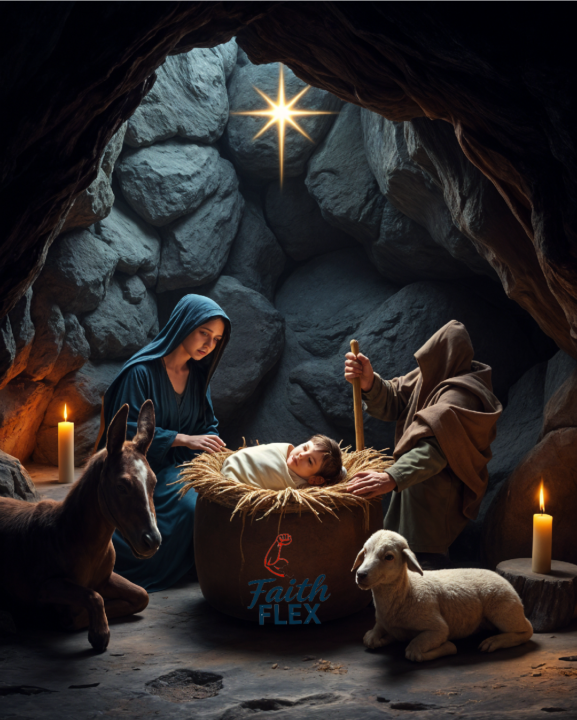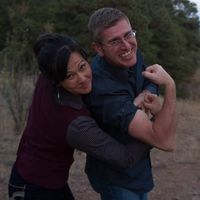Activity
Mon
Wed
Fri
Sun
Jan
Feb
Mar
Apr
May
Jun
Jul
Aug
Sep
Oct
Nov
Dec
What is this?
Less
More
Memberships
Faith Flex
57 members • $10/m
9 contributions to Faith Flex
Chanukah or Christmas?
This isn't about debating which. I used a question as a title for the sake of answering why my family chose Chanukah. Believe it or not, not everyone who does Chanukah does so because it is a "Jewish" Holiday/Festival. It's not a commanded Feast like Tabernacles (Sukkot), Passover (Pesach), and Pentecost (Shavuot). The reason Judaica (Orthodox to Progressive to Messianic to Hebrew Roots) choose Chanukah is because of its Jewish/Hebraic cultural beginning. Most, at least, in those circles who choose it over Christmas, are doing so for this reason, but not all are. [They] celebrate the retaking of the Temple by the Maccabbees and the "Chanukah Miracle" of a single day's oil lasting 8 days. To be honest that miracle can't be verified by any relevant source. But that's not why my family chooses to celebrate Chanukah over Christmas anyways. I'm neither for nor against the "Chanukah Miracle". It's simply not relevant to me. The story of Messiah's birth in Luke 2 is why I choose Chanukah. The story gives us all the clues we need, to understand what time of year it was. The census of Rome would have been done during a time when it was easiest to get all of the MEN counted and determine the size of their families and their income source. Clearly the easiest time would have been during a COMMANDED Feast. Only 1 of the 3 commanded Feasts fits the bill because of what we see with the shepherds. They were on a hillside, which means they'd climbed in elevation away from the typical pasturland. Customarily this was done during Fall into Winter in order to preserve what pasturland they had below for the cold months ahead. It was also because the "former rain" that came as part of their twice a year rainy seasons. It would create quite a deluge of water in the lower lands and having their flock trampling on it would be a surefire way of killing the grasses off for months to come, a bad strategy when you need to be able to feed them close to home because of the unpredictable nature of winter weather, especially in higher elevations.

WELCOME!!
Please take a minute to introduce yourself. Tell us about your areas of interest and what you're hoping to gain from our community. BUT MOST IMPORTANTLY, what area(s) do you feel is/are your specialties? This is all about you! So, let us hear from you.
Pinned in the course below so you can comment/ask questions there
Is the Bible Truly Consistent? Let's Ask it...
1 like • Oct '24
The Bible is consistent, and Jesus is God, and the Holy Spirit. To deny this is true is denying God. I have never understood how anyone can deny Jesus is God, it says it through out the Bible. We go to a non-denominational church because I don’t want rules of religion to take away from the teachings of the Bible.
I'm Baaaaack...
Good day all!! Sorry, I was a way for a bit. Focusing on Family Time. For the next couple days I'll be posting some content to help you research. Keep your eyes on the Classroom. These materials will unlock as Level 2. If you don't know how to Level Up check out the post pinned at the top of the General Discussions (same as this one). 😉
Bible Study Methods
It's Open to Everyone - even brand new members to Faith Flex 👉🏼👉🏼 Check it out!
2 likes • Oct '24
I struggled with the some of the opinions in this. I believe the Bible is the Living Word of God. It is the Holy Spirit in us who allows certain books or a single verse in a Book of the Bible for me to understand. I struggle with Comprehension and ADHD. I had to read and reread the Bible Study Methods. I can’t memorize scripture, and I am always researching. I believe the Bible is my Sword, the Word of God is my Sword to fight against evil, and learn to be a better daughter to God, person, wife, mother, and friend.
1-9 of 9
@lisa-gonzales-9652
I have recently reconnected with Jesus, and I couldn’t be where I am in my life, and my marriage without Jesus.
Active 366d ago
Joined Oct 20, 2024
Alabama
Powered by


